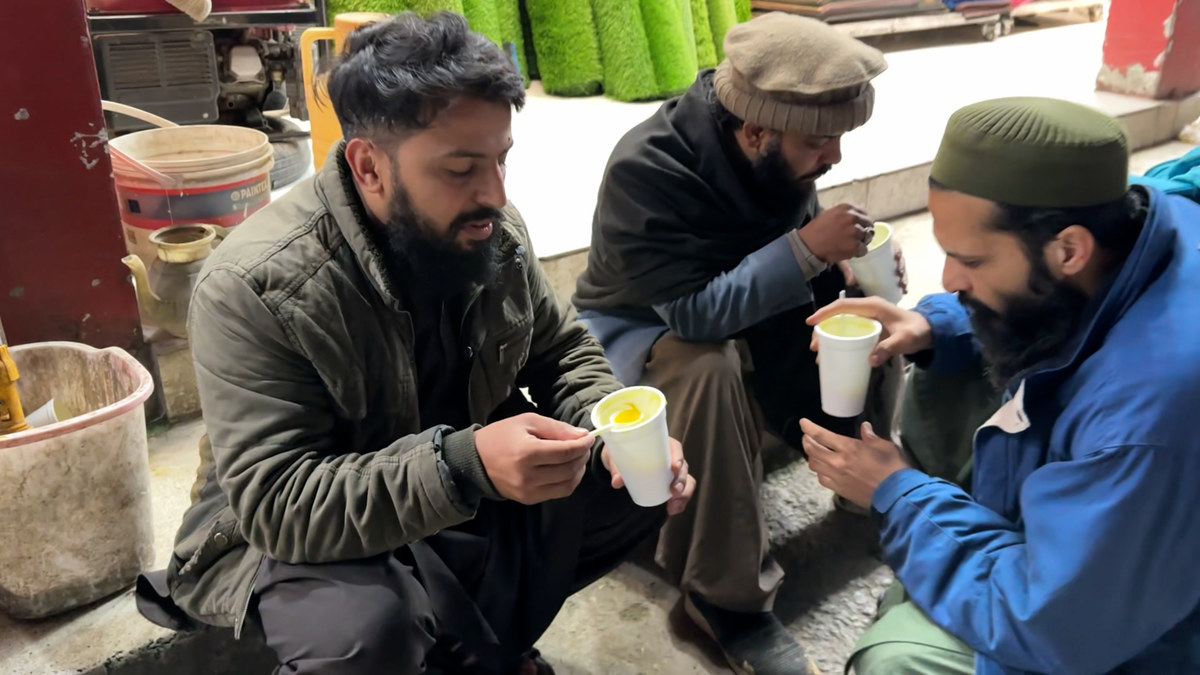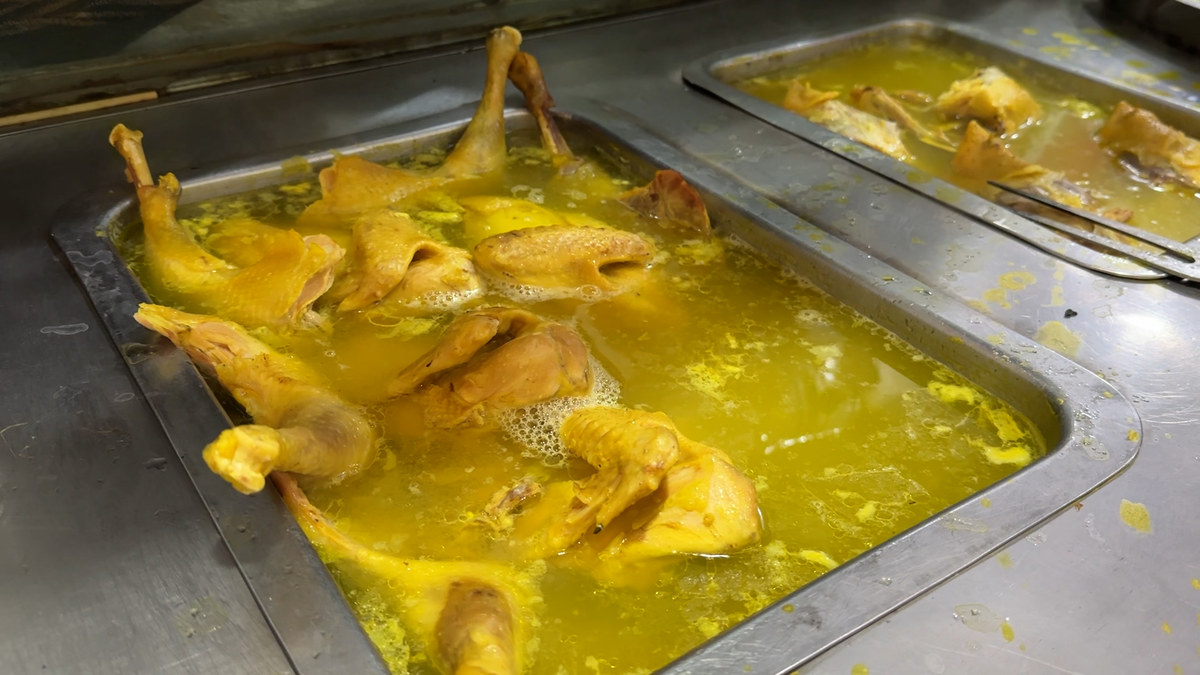RAWALPINDI: The chef poured a generous helping of broth into the styrofoam cup and topped it off with large slices of a boiled egg and a piece of chicken.
The scene is from the iconic Chicken Yakhni Center in Rawalpindi’s busy Saddar area, serving up yakhni, or broth, since the 1970s to loyal customers who keep coming back for more.
In South Asian countries, yakhni is a rich broth made by slow-cooking chicken, beef or lamb with spices such as black cardamom, ginger and garlic. It is touted for its health benefits and becomes a winter staple in Pakistan, especially varieties prepared using desi or free-range, organic chicken. Desi chickens are raised in rural settings and preferred for their leaner meat and rich flavor over broiler chickens, which are birds farmed for meat on factory farms.

The still image taken from a video shows customers devouring chicken broth at Chicken Yakhni Center in Rawalpindi’s busy Saddar area on March 6, 2024. (AN Photo)
At the Chicken Yakhni Center, the owners are so proud of the quality of chicken that goes into their yakhni that they have a challenge for their customers, advertised on a flashy signboard outside the shop: if a client can prove that desi chicken is not used to prepare the broth, management will pay them a reward of Rs10,000 ($35.78).
“Our challenge remains that whoever claims these are not desi [chickens,] they should come up and prove it,” Adeel Tariq, the manager of the shop, which is owned by his father, told Arab News. “We will definitely be rewarding him.”
Tariq’s grandfather Hajji Meera Bakhsh opened the shop in the 1970s after which his father, Tariq Mehmood, took over in the early 2000s. It was Mehmood who came up with the idea of the challenge, which has had a positive effect on sales, Tariq said.

The still image taken from a video shows chicken broth being prepared at the Chicken Yakhni Center in Rawalpindi’s busy Saddar area on March 6, 2024. (AN Photo)
But it’s the taste and quality of the yakhni that really sells:
“Not only do we use desi chicken but garlic, ginger and other desi household ingredients. We have our own spices too, so that has an effect on the soup as well.”
Tariq operates the shop from Oct. to Mar. 31, with sales peaking in November, December and January when the biting cold in Rawalpindi makes steaming cups of broth the perfect winter fix.
The price is also affordable: A large cup of broth with a piece of chicken and boiled egg costs Rs250 ($0.89) while one with just egg and broth is priced at Rs200 ($0.72).
“During those [winter] months, we sell more than a thousand [cups] roughly on average [per day],” Tariq said.
And what happens when summer begins?
“We rent out the shop to our cousins, who use it to sell clothes till winter comes again,” Tariq said.
Zeeshan Ashraf, a 39-year-old teacher at Riphah International University in Islamabad, said Chicken Yakhni Center was the perfect winter spot for him and his friends.
“God has put a lot of taste in their hands,” Ashraf told Arab News, referring to the chefs at the yakhni shop. “I would urge others to try out this spot too.”
Customer Nazish Dilawar, who works at the Ministry of Health, said she and her family frequented the broth shop during winters whenever they visited the Saddar area.
“It did taste like there was desi chicken in it,” Dilawar said. “But we can’t tell if it is really desi chicken or not.”
Ashraf said it was not possible to tell while having it if the soup was made using broiler or desi chicken.
“But when you eat the [chicken] piece, you get to know this is desi chicken,” the customer said, as he slurped on his cup of yakhni.
So, has someone ever walked away with the Rs10,000 award?
“No,” Tariq said, smiling. “No one has yet been able to prove we use other than desi chickens in our broth.”












